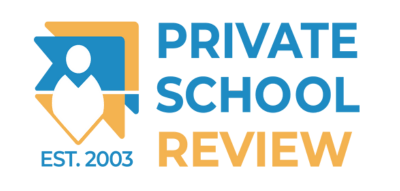I had the distinct pleasure of interviewing Jon Boeckenstedt, an enrollment management pioneer, analytic guru and the Associate Vice President, Enrollment Management and Marketing at DePaul University. His understanding of brand is it pertains to himself, and his tuition-based landscape has made him a sought after keynoter and conference leader.
TW: Jon, what is the difference between a successful and unsuccessful enrollment manager?
JB: I think a successful enrollment manager is both curious and innovative; that is, eager to find patterns and connections, and then capable of finding new ways to turn insight into action. The less successful operations tend to be led by people who like a recipe of activities that will lead to successful outcomes, and they are always searching for someone to tell them what to do, which is, of course, the antithesis of leadership.
TW: What is the most significant difference between K-12 private schools and higher ed. enrollment management and marketing?
JB: I think the biggest difference between K-12 and universities is scale, of course, and the role of the decision-maker. While parents are involved at both levels, universities have to weigh the process more heavily toward the student.
TW: I would agree with that assumption and am seeing more and more students behind the wheel of the decision making in recent years. Even among the youngest students. To that end, admission, marketing, and enrollment management have become a pressure cooker at all levels. As a top administrator in your field, what qualities and qualifications do you see when hiring someone to your office?

JB: I’m always more interested in qualities than qualifications. I like people who are angular, that is, always looking at the world from different angles; people who are curious and eager to continue learning; and people who would rather ask forgiveness than permission. The qualifications vary depending on the office the person is applying to, of course, but I like good written and oral communication skills and a good sense of humor.
TW: I love that you want people to take the bull by the horns. I was often the one seeking forgiveness, but it’s because I am headstrong when I know what’s right and have the data to back it up. It makes me anxious when I see a school of “lizard-brained leaders” that don’t recognize the value in evolving. What do you see as the biggest challenge to institutions like tuition-based schools?
JB: Not surprisingly, innovation is the challenge, but it’s brought about by both a decreasing population and a decreasing ability of the population to pay. That can be a death sentence for a lot of places that don’t change.
TW: Ha! I know that all too well, but for some, they don’t understand that. Not only does the impending bubble scare me, but that people in leadership positions do not want to acknowledge the real problem. That’s what keeps me up at night. What keeps a university-level enrollment manager up at night?
JB: Fashion, in the sense that it’s impossible to predict or explain, and it drives a lot of irrational decision making. If your college falls out of fashion, there is little you can do to combat it.
TW: Another great point that is almost impossible for the school’s enrollment management personnel to control. Switching gears quickly to something that I spent too much time thinking about: technology. How do you think it may change the landscape of attracting, enrolling, and graduating mission-appropriate students moving forward?
JB: Trevor, I have this fear that in twenty years much of what we do will be done without a great deal of human interaction. By then AI will likely be good enough to know who’s interested, or who should be, whom you should admit, and how much aid you should provide them in order to maximize outputs. On the other hand, I’d love it if we could finally centralize all college application processes in one place, via some sort of government or universally-agreed upon platform to manage operations.
TW: Interesting to ponder that a profession that takes much analytical thinking combined with genuine interpersonal skills could be nearly obsolete one day. Last question before I let you go. If you could pass along advice to Jon Boekenstedt from 2009, what would it be?
JB: Trust your instincts more, and take a few more chances.
TW: Jon, I really appreciate your time!
JB: It was my pleasure, Trevor. Thank you.











